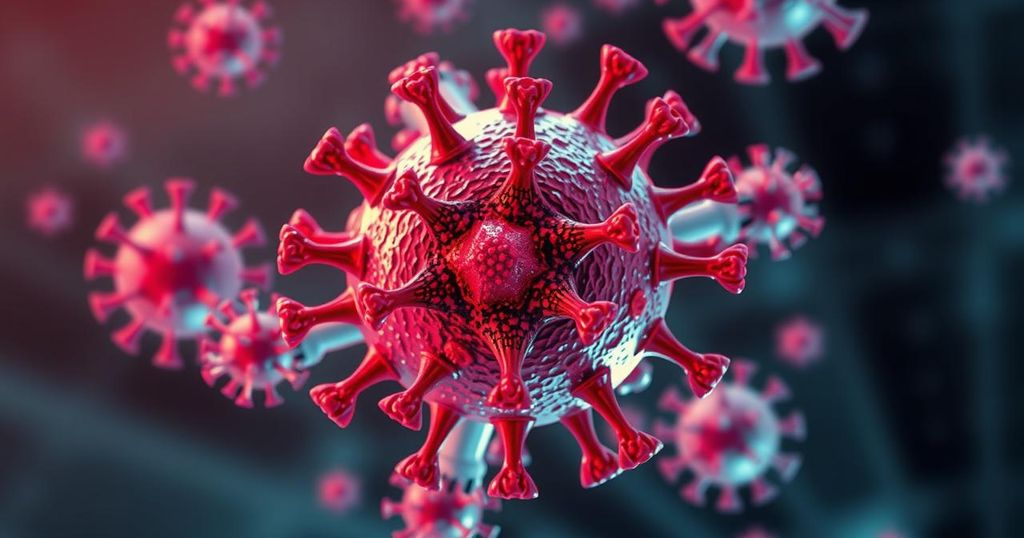The UN Environmental Programme warns of an impending pandemic by 2030, with H5N1 avian influenza posing a notable threat. Outbreaks of zoonotic diseases and antimicrobial resistance are escalating concerns globally. Despite ongoing treaty negotiations to enhance pandemic preparedness, significant gaps remain in international collaboration.
The UN Environmental Programme’s July 2024 report highlights the potential for a new pandemic to arise by 2030, particularly emphasizing the escalating threat from the avian influenza strain H5N1, which is only one mutation away from human transmissibility. Throughout 2024, the world has experienced a resurgence of zoonotic diseases such as cholera, mpox, and oropouche fever, with the World Health Organization (WHO) documenting at least 16 outbreak-causing viruses and bacteria.
The ongoing crisis related to antimicrobial resistance (AMR) remains a pressing global issue, especially in the wake of the COVID-19 pandemic. Despite the WHO’s ongoing efforts to establish an International Treaty on Pandemic Prevention, Preparedness, and Response, significant deficiencies in global collaboration and readiness persist. The report forewarns that continued deforestation, urbanization, climate change, and unsustainable agricultural practices are likely to exacerbate the emergence of zoonotic diseases, projecting a twelve-fold increase in associated fatalities by 2050 compared to 2020 levels.
In Africa, a virulent variant of mpox, known as Clade 1b, has led to approximately 50,000 cases and over 1,000 deaths since its identification in the Democratic Republic of Congo in September 2023. The strain has since spread to neighboring nations, prompting the WHO to declare a public health emergency of international concern in August 2024.
In Latin America, vector-borne diseases such as dengue and chikungunya are proliferating, with Brazil reporting the highest number of dengue cases ever recorded—over 6 million in 2024. Changes in climate favor the survival of disease-carrying mosquitoes, with Aedes albopictus, an invasive mosquito species, now found across 13 EU countries.
In North America, H5N1 has transitioned from poultry to dairy cows, impacting 16 states and leading to infections in at least 65 individuals, further raising alarm over its potential for mutation and adaptation.
In response to AMR, the UN recently approved a political declaration aimed at mitigating the estimated 4.95 million human deaths attributed to antimicrobial resistance by committing to a 10% annual reduction in AMR-related fatalities by the year 2030.
The article discusses the emerging threats of infectious diseases in the context of the UN Environmental Programme’s 2024 report. It illustrates the heightened risk of pandemics due to various factors, including environmental changes and antimicrobial resistance. The discussion is framed by the ongoing global public health challenges posed by zoonotic diseases, as the world reevaluates its preparedness and response strategies post-COVID-19. The interplay between human activity and disease emergence necessitates immediate and coordinated global efforts to prevent future outbreaks.
In summary, the potential for future pandemics is significant, driven by various emerging diseases and the exacerbating effects of environmental degradation. The world must intensify efforts in public health preparedness, collaboration, and impact mitigation strategies, particularly concerning antimicrobial resistance, to avert catastrophic health outcomes. The need for a comprehensive global approach to health continues to be imperative as new threats loom on the horizon.
Original Source: www.downtoearth.org.in






